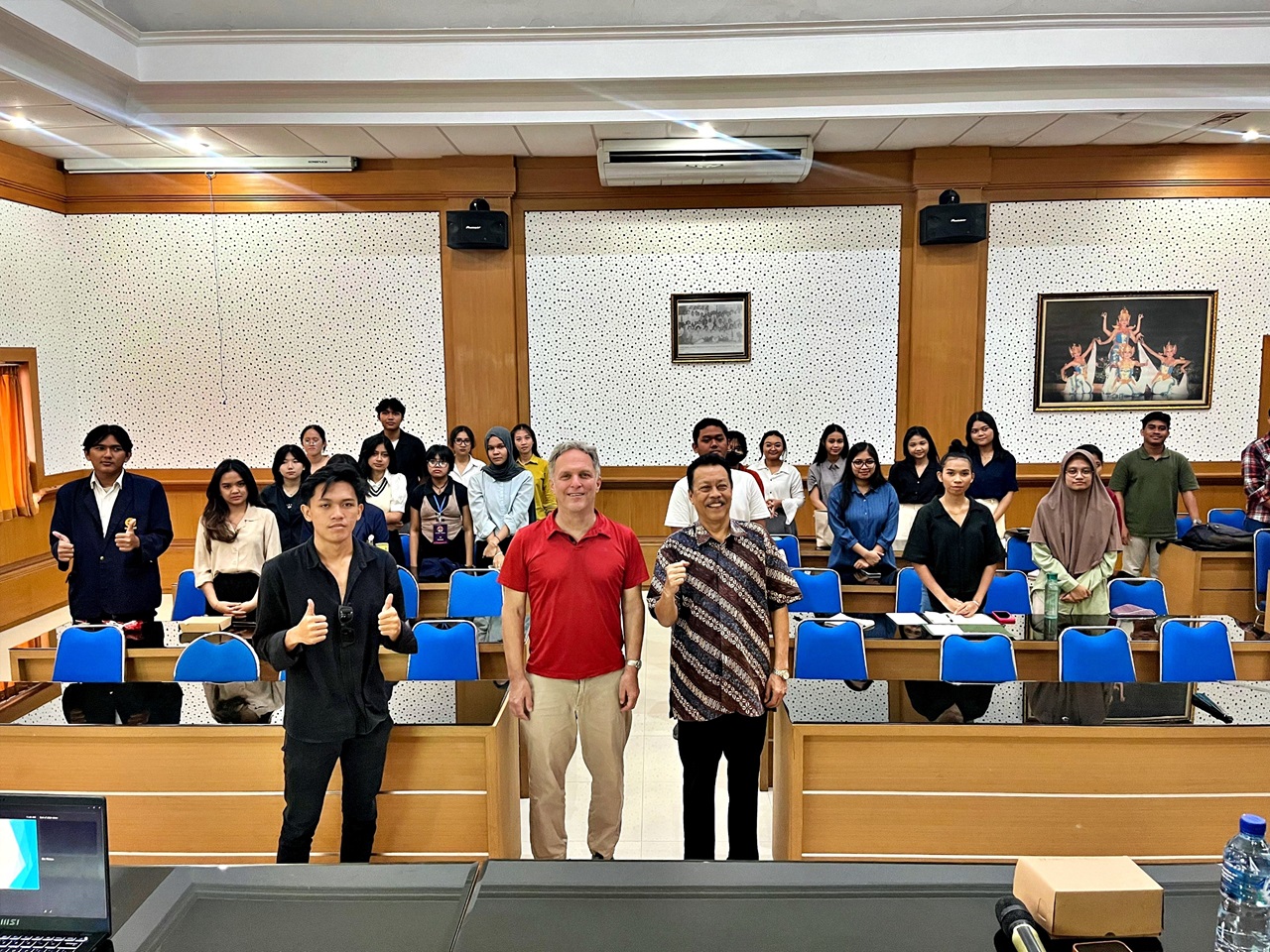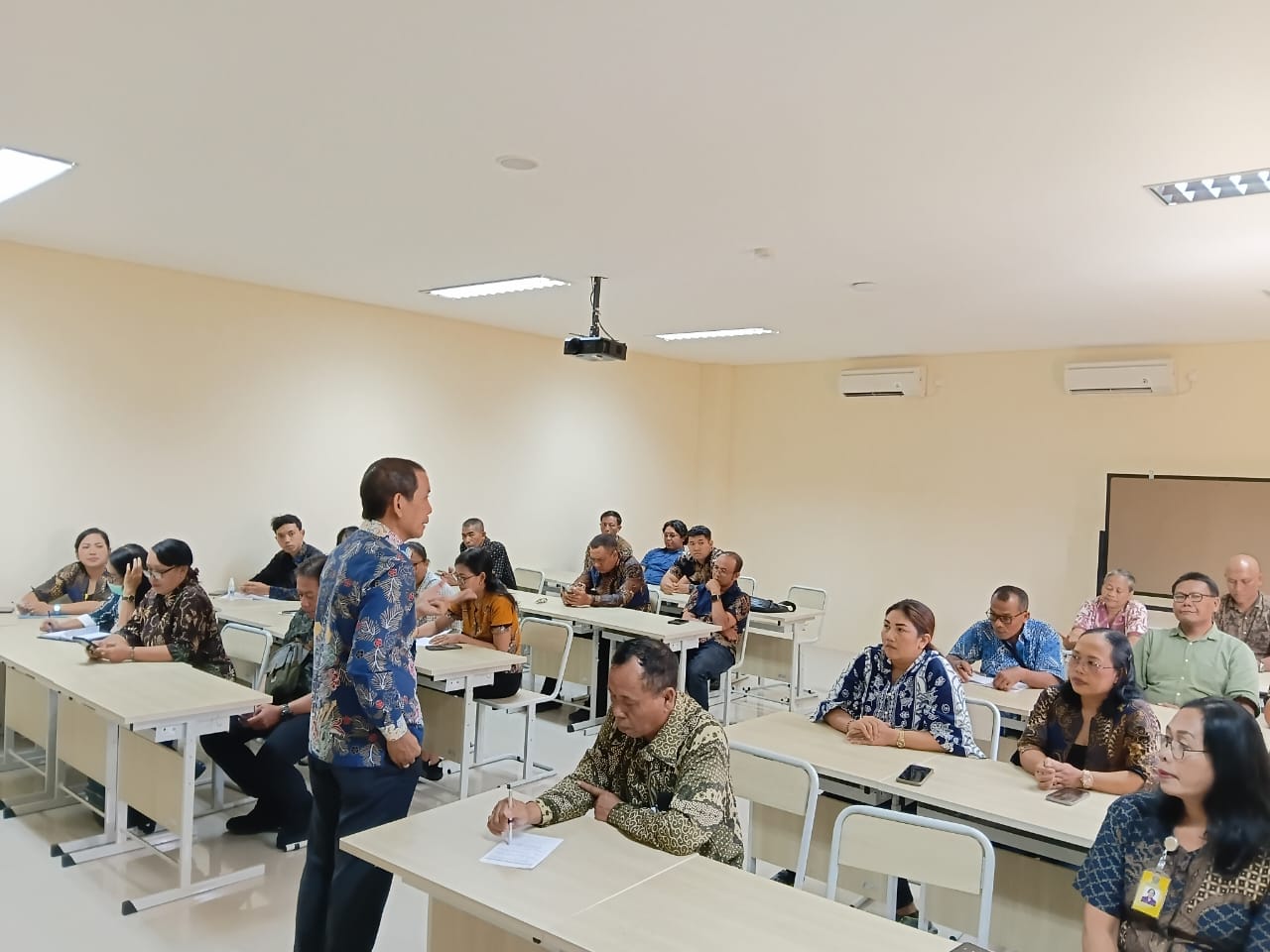English Literature Study Program Held Guest Lecture entitled "The Sociolinguistic Perspective Of Hebrew"
The English Literature Study Program, Faculty of Humanities, Udayana University held a public lecture entitled "The Sociolinguistic Perspective of Hebrew" on Wednesday, May 15 2024, at the Priyono Room, Poerbatjaraka Building, Faculty of Humanities. This activity was specifically attended by student representatives from semester IV, the Research Method on Language and Literature class, totaling approximately 40 students. The activity was guided by Prof. Drs. I Made Suastra, Ph.D., the lecturers in the Research Method on Language and Literature course, and invited external speakers from the University of Haifa, Israel, Prof. John Myhill. The aim of this Guest Lecture is basically to provide a new perspective for students related to research methods, forms of research, and how to carry out language research.
On this occasion, the speaker presented material related to a sociolinguistic perspective on language research and development. The speaker uses the example of Hebrew as the main data, and explains in detail from the history, use and rise of Hebrew for Jews in Israel, to the influence of diaspora and religion in the development of the language. In his material, Prof. John Myhill, who previously also participated in the Literature Series Seminar at the Faculty of Humanities, explained the history of the development of the Hebrew language, its description and challenges, starting from BC to the present. The presentation continued by making social and cultural comparisons between the Jews as speakers of Hebrew, and the Balinese people as speakers of Balinese.
After the material was presented, the Guest Lecture continued with a discussion and question and answer session. The participants were quite active in asking about the development of the Hebrew language and matters related to how much influence the diaspora of native-speaking communities outward, or other speaking communities inward, was associated with the development of a language. Some other participants also asked several questions related to the habits and images of Jewish life, whether Hebrew, which is generally the language used in the Bible, is also used in everyday conversation, and what the perspective and treatment of the Jewish people to Hebrew. (npa, jh)




UDAYANA UNIVERSITY